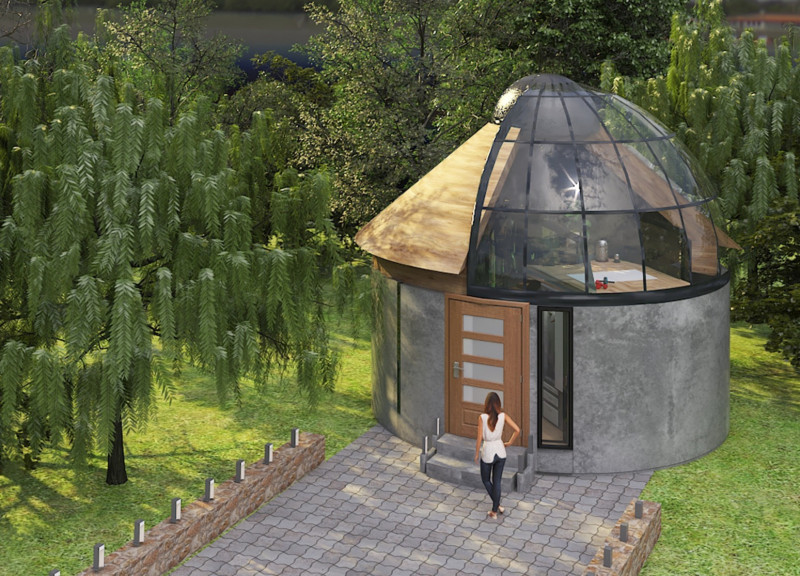5 key facts about this project
Hidden Rooms is designed to provide a living space for two occupants, focusing on adaptability and efficient use of space. Located in a compact urban setting, the design allows users to modify their surroundings for different activities such as resting, working, and enjoying leisure time. The concept emphasizes reconfigurability, which is essential for urban living.
Innovative Furniture Solutions
The design incorporates retractable furniture, specifically a bed and desk that can rise from the ground. This thoughtful approach addresses the varying needs of the occupants while keeping the living area uncluttered when these pieces are not in use. The retraction of furniture helps create a minimalist feel and maximizes the available space, an important consideration in small living environments.
Natural Elements
A key feature of the space is the presence of a tree. This element serves more than just an aesthetic purpose; it also helps improve air quality and enriches the indoor environment. The tree establishes a connection to the outdoors, promoting a sense of well-being and calmness in the confined urban context. Its inclusion adds character to the design and enhances the overall atmosphere inside.
Spatial Flexibility
Access to an elevated area is provided by a spiral staircase that wraps around the tree. This area is dedicated to activities that promote mindfulness, such as yoga or meditation. The elevated space benefits from light filtering through a glass ceiling, which creates an open feel and enhances the experience for users.
The "Puzzle Shaped Moving Glass Wall" is another notable feature, allowing for flexible use of the space. This wall can be repositioned, enabling various configurations depending on the occupants' needs throughout the day. The design encourages interaction and adaptability, catering to both solitary moments and social gatherings.
Overall, Hidden Rooms emphasizes functionality and the integration of natural light. Even within a limited footprint, each design element has been carefully chosen to ensure a practical and enriching living experience. The result is a modern take on urban living that meets the demands of contemporary life.



















































